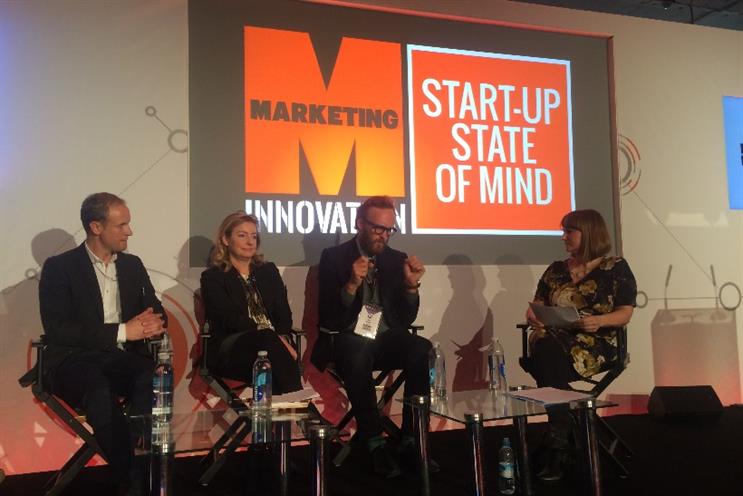
Basset oversees Unilever Foundry, the FMCG giant’s in-house start-up programme that nurtures new businesses with an eye to eventually partnering.
Speaking at Marketing’s session at Advertising Week Europe, Start-up State of Mind, Basset said: "Disruption is definitely a threat, but also a huge opportunity. The reality is that we fear the things we don’t know."
The idea behind the Foundry, he said, was to get employees "comfortable" with disruption and closer to start-ups.
But he said: "When it comes to a start-up mentality, the reality is we are not a start-up. The challenge for corporates is not necessarily to be a start-up, but to partner with start-ups."
Agencies as brokers
Basset added that agencies should evolve to act as brokers between brands who were failing to innovate and start-ups who might help.
He said: "If agencies were agents to that plethora of innovation, we would be in quite a different space to where we are. Some of the things I encourage our agencies to do is to go out there, find [new] tech and bring it back to us.
"If agencies play that role, it’s a good thing for everyone."
Poke’s co-founder Nik Roope pointed out that a willingness to change had to stem from the brand first.
Marketing as a discipline, and corporates as a whole, are bogged down by procedures and targets. Roope said a true start-up mind might have nothing to do with tech, but simply cutting out unnecessary bureaucracy.
He said: "Corporates are resourceful and receptive to [added] value. But the way they work is very procedural and very structured. It takes time to change.
"What the start-up story represents is a metaphor – it’s simply approaching the world in a way that leads to greater efficacy."
Marketers should 'think Tinder’
Disruption doesn’t necessarily have to affect a brand’s core business, but can still impact its operations.
Huib van Bockel, Red Bull’s former UK marketing chief, pointed to the increasingly speedy nature of digital communications, which impact how customers consume advertising.
He said: "Back in the day, you had a brand positioning and you would communicate that with one or two ads a year.
"Now you need to have a commercial roadmap covering multiple channels – social, digital – and you also no longer have that 30-second spot. Marketing has become like Tinder – consumers choose whether to engage with content or swipe it away."
When it comes to creating a culture of innovation within a company, futurist Tracey Follows noted that leading disruptors such as Apple and Google fostered people, rather than technology.
She said: "A practical tip is that it comes from the top. In the most innovative companies, CEOs spend 50% of their time on discovery activities – networking, talking – and then build a team around their vision and values."
Van Bockel said companies shouldn’t aim to create a disruptive "big bang", but to create a culture of embracing risk.
He said: "If you think about Red Bull, it’s all in the culture. You can’t plan for the big bang moments."
Recommended



.jpg)
.jpeg)
